Search Results
Showing results 1 to 20 of 21
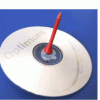
CD Spinner
Source Institutions
In this activity, learners create a simple “top” from a CD, marble and bottle cap, and use it as a spinning platform for a variety of illusion-generating patterns.

Setting the Scene
Source Institutions
In this activity (on page 2), pairs of learners create an imaginary crime scene. One person leaves the room while the other person moves a few things around.
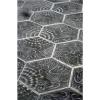
Geometry: Tiling the Plaza
Source Institutions
In this math lesson, learners arrange pattern blocks to create tessellations and to explore geometric patterns. Learners first explore making patterns with a variety of pattern blocks.
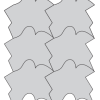
Making a Translation Tessellation
Source Institutions
In this activity, learners slide shapes to create unusual tiled patterns.
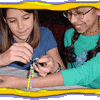
Wear a Chimp on Your Wrist
Source Institutions
Learners construct a bracelet containing two strands of beads, which represents a double strand of DNA that codes for a gene. They match beads to the bases in a section of a chimp's DNA code.
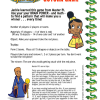
Gotcha Game
Source Institutions
In this Cyberchase activity, learners play a simple game using 15 paper dragons (or any 15 objects). One of the 15 dragons is red. Learners try to make their opponent take the red piece.
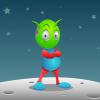
Alien Encounter
Source Institutions
In this activity, learners use multiplication skills to get groups of aliens safely back to their planet.
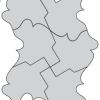
Exploring Tessellations (Grades 6-8)
Source Institutions
In this activity, learners design unique tiles and make repeating patterns to create tessellations. This activity combines the creativity of an art project with the challenge of solving a puzzle.
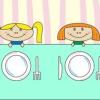
Family Reunion
Source Institutions
In this activity, learners combine counting, area and perimeter concepts as they prepare the seating arrangement for a family reunion dinner.
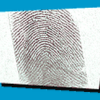
Fingerprints
Source Institutions
In this activity, learners examine their fingerprints and learn that they can be categorized by shape, but each fingerprint is unique.

Where Do We Choose to Live and Why?
Source Institutions
In this geography investigation, learners use a nighttime satellite image to observe areas of light across the United States and to identify patterns and spatial distributions of human settlements.

Stairway to the Sky
Source Institutions
In this math activity, learners use cubes to calculate how many blocks it would take to build stairways with different heights.
Jump on Tens: Counting Fun
Source Institutions
Learners combine counting, multiples, and number patterns with jumping up and down. To start, pick a counting number.
Toothpick Patterns
Source Institutions
In this math activity, learners make toothpick designs by following simple patterns.
Hexagon Hunt
Source Institutions
This activity gets learners looking at 6-sided shapes in nature, including the cells of a beehive, as well as other shapes.

Dr. Vet: Noses, Ears, Legs and Eyes
Source Institutions
In this activity, learners practice counting and multiplication as they figure out how many animal body parts they have to examine as "Dr. Vet."
Find Someone: Use Math to Learn About Friends
Source Institutions
Create a “Find Someone” list, with about 10 items, each containing a shape, number, or measurement. Can you find someone in the group with hair about 4 inches long? Someone wearing parallel lines?

Tessellations
Source Institutions
In this activity, learners will engineer a new shape and use it to create a new pattern with no wasted space.
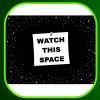
Star Search
Source Institutions
In this online activity, learners can test their skills at finding constellations in the northern hemisphere's night sky.
Catch the Beat
Source Institutions
This is an activity about music, movement, and math. Learners will start a rhythm pattern with 2, 3, or 4 beats. For instance, tap your foot, jump, clap, repeat.
